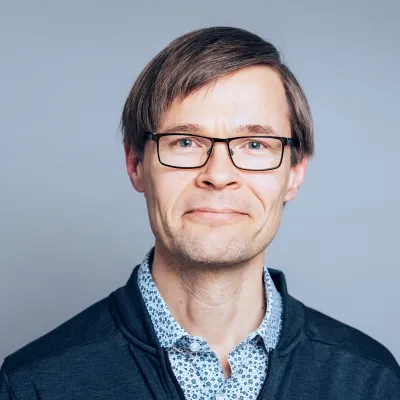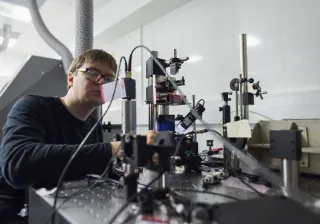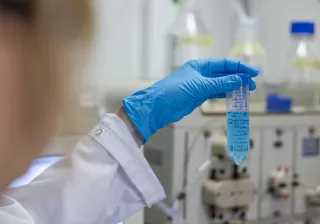Developing the circular economy is essential in order to ensure the sufficiency of natural resources and mitigate climate change. However, both companies and consumers need to learn new things to shift to the circular economy. Greater demands are also being placed on measuring technologies that enable recycling – even more accurate and efficient measurement-based identification, sorting and quality assurance of materials are required for efficient recycling and reuse.
Current measuring technologies and commercial measuring instruments are only suitable for a small part of the techniques needed for the circular economy. Many of the calibration methods needed for quality assurance either do not exist yet or are too time- and resource-heavy. Furthermore, the standardisation and legislation necessary for equitable and safe operations are still being shaped.
Measurement ensures safety
In the recycling of water and food packages, attention is paid particularly to assays of chemical residues and microbiological measurements to ensure safety to health. The accuracy and reliability of these measurements have worldwide impacts on public health. In the Baltic Sea area alone, municipal wastewater treatment facilities discharge an estimated 1,800 tonnes of drug residues into bodies of water each year. That said, the concentrations of these substances amount to billionths of a gram per litre of water.
To reduce the amount of construction materials that are incinerated, used only for earth filling and end up in landfills, it must be possible to use measuring techniques to effectively identify materials and determine their physical and chemical properties. Based on the measurement results, materials that are suitable for reuse are recovered and graded for further processing. In addition, it must also be possible to identify and remove hazardous substances, such as asbestos, from the material flow.
The use of recycled materials is restricted by legislative means to ensure, for example, that food packages and building materials are safe to use. In the future, when we have access to more advanced measuring technologies and relevant measuring data enabled by quality assurance, these restrictions are expected to change.
Economic significance counted in billions
Measurement reliability is particularly significant not only in public health issues, but also in the recycling of materials such as metal and electronic waste when the substance being measured is valuable, such as platinum, or hazardous to health, such as cadmium. To reach the global objectives, the volume of recycling-related activities must be stepped up enormously – and this means that even relatively small errors in measurements will have major financial impacts in trading.
Let me illustrate the scale of operations: in 2018, the global market for recycled copper was estimated to be almost 800 million tonnes. With the current price of recycled copper, a measurement error of 0.01% would amount to about 400 million euros.
Risk management through traceability
When the circular economy is running efficiently, materials circulate for as long and as many times as possible. This increases the occurrence of qualitative risks in products, because there is always some uncertainty in the measurements of quantities and properties of materials. Recycling can compound these uncertainties in an uncontrollable manner. For effective risk management, it is very important that the measurement and origin information as well as information about measurement uncertainty circulate with the material.
The functionality of the system requires two types of traceability: the traceability of materials enables better optimisation of material flows and, therefore, new business models. On the other hand, metrological traceability in conformity with international standards enables reliable and transparent quality assurance. Credible quality assurance ensures that we can safely recycle materials and that international trade can run smoothly.
New measuring solutions
The circular economy needs new measuring technologies in order to identify different chemical compounds in solid materials and liquids, measure the physical properties of materials and perform microbiological measurements. From a business standpoint, it is important that measurements are made continuously, with automated quality assurance. New calibration methods are needed for this purpose.
Many Finnish companies in the measuring sector have taken up the challenge posed by the circular economy, recognising the extensive business opportunities it offers. VTT promotes the achievement of these goals by developing new measuring and calibration technologies in collaboration with companies. The National Metrology Institute VTT MIKES, operating as part of VTT, is part of an international network whose operations enable the metrological traceability and acceptability of measurement results all over the world.
In the digital age, the importance of measurement data as a security factor and a tradeable commodity is increasing – how will we ensure its reliability?






